Neglect of education
THE observation by a Supreme Court bench that the education system in the country is in a complete mess is stating the obvious. Converting a letter of complaint by a father from Faisalabad into a writ petition, the Chief Justice has issued notices to various education secretaries asking them to file their replies. This will help the court fix the responsibility for this negligence. This would prove to be a significant move because accountability is the key element that has been missing all along in education policymaking. The main complaint of the petitioner is that the government has virtually abdicated its responsibility to provide education to the children of this country and has given the private sector a free run of the field. Considering the fact that the private entrepreneurs are running educational institutions as commercial enterprises, the fees they charge are beyond the reach of the common man. One could have ignored the cupidity of the private educator had the public sector schools and colleges been up to the mark as used to be the case in the days of yore. That would at least give parents a choice.
The problem is that education today presents a catch-22 situation for a not so affluent person. While the good private schools that offer quality education are forbiddingly expensive, public sector education that is affordable has been in a state of decline. This need not have been so had the government recognised that its primary duty to provide education to the citizens and had better planned this sector accordingly. Realising that only the poor classes, which account for the backlog of illiteracy, would seek public sector education, our policymakers felt that they could neglect this sector. As a result, the high financial input in education has failed to improve the system. Last year the education budget (federal and provincial) amounted to Rs208 billion as against Rs 111 billion two years ago. Where have all these funds gone? The Pakistan Economic Survey 2005-06 informs us that nearly a quarter of all children enrolled in the primary classes nationwide — 50 per cent in the urban areas — are attending private schools where enrollment is growing at a much faster rate. This speaks of the deteriorating state of the public sector institutions whose number is also on the decline. A lot of this can be attributed to corruption — there being plenty of scope for it in the education departments that are the largest number of and most dispersed employers in the public sector. No one can now complain of paucity of resources but it is a pity that funds are not being put to good use.
All this points to a lack of political commitment on the part of those at the helm. The government feels that universal education is not such a vital need of the people. President Musharraf once argued that even three per cent of Pakistan’s population — if highly educated and trained — outnumbers the entire population of one of the smaller Scandinavian countries. But if a small percentage of people can run the economy does this provide a justification for neglecting the education of the masses? Education is the basic right of every citizen. It is also indispensable for the social, economic and political development of the country in a knowledge-driven world. It is shocking that we still have people in Pakistan who do not view education as vital for human life as air, water and food.
Gwadar-KKH link
MAJOR energy and communication plans now under way could have a vital impact on the regional energy situation and help bring Pakistan and China even closer. As pointed out by President Pervez Musharraf, while inaugurating the dry port at Sust on Pakistan’s border with China on Tuesday, strategic location is one of this country’s major assets. Situated in South Asia, Pakistan borders on Central Asia, South-West Asia and the Gulf. This is of special significance when viewed against the region’s growing energy needs and the potential that Pakistan has to serve as an energy corridor between China and the Gulf. Projects of this nature include an oil pipeline from the Gulf to China’s western regions across Pakistan and a gas pipeline from Turkmenistan to Pakistan via Afghanistan. A key role in this energy corridor to China will be played by the Gwadar port whose second phase of development with Chinese assistance has already begun. The movement of oil and trade between Pakistan and China will obviously gain momentum when Gwadar is linked to the Karakoram Highway as stated by President Musharraf. Plans are also afoot for a rail link between Pakistan and China. The Chinese have already built the railroad to Tibet in what is indeed an engineering feat. Its extension to Pakistan will lead to a faster movement of cargo and tourists between the two countries.
A pertinent point here is the safety of the proposed oil and gas pipelines that are to pass through Afghanistan and Pakistan’s western regions. Disturbed conditions in the two places militate against the ambitious plans coming to fruition. The situation in Afghanistan shows no signs of improving, and the insurgency, though in the decline, is far from over. If Pakistan is to really serve as an energy corridor between the Gulf and China and the Gwadar port is to become a major outlet for trade between the China, Central Asia and the Gulf region, Islamabad must pay attention to the security aspect of the proposed pipelines. The linking of the KKH with Gwadar will need the building of new highways and rail tracks passing through Balochistan’s vast expanse. This calls for bringing the crisis in Balochistan to an early end by political means.
Maternal mortality
WITH three women dying every hour of birth-related complications in Sindh, it is no surprise that the province has some of the worst figures in Pakistan for maternal healthcare, as indicated by doctors at a recent seminar in Sanghar. The situation in the rest of the country is not much better. It is, in fact, worse in rural Balochistan where, in some areas, the maternal mortality rate is well over 700 per 100,000 live births, above the national average of 500. The urban/rural differential is even greater, and cities like Karachi have an MMR of approximately 300. These figures speak volumes for the kind of ramshackle health infrastructure that exists in most parts of the country and the poor access to proper medical services. But this is perhaps an obvious deduction. What the statistics also reflect is the generally low status accorded to women and the kind of conservative attitudes that make it difficult for many to even consult a doctor during pregnancy.
At least 30 to 40 per cent of pregnant women in the country suffer from anaemia, a blood condition relating to an iron-deficient diet — one that can predispose them to haemorrhaging, a major cause of death during childbirth. Hypertension and infection are other factors which, if not controlled, can prove fatal. Unfortunately, the traditional birth attendants who oversee most childbirth cases in the country do not possess the required training to handle deliveries where life-threatening complications can develop. While the government is well aware of the dangers of this situation, not enough is being done to impart the requisite knowledge and skills to birth attendants who remain largely ignorant of the rules of even basic hygiene. Besides making basic health services accessible to women, there is a need to correct the gender bias that is at the root of the high prevalence of maternal mortality.
Power game for the UN top job
INDIA and Pakistan are back to their rivalrous mode. This time, the issue in question does not involve Kashmir, Kargil, Siachen or even the permanent membership of the UN Security Council. The new ruckus revolves around India’s unmannerly bid for the post of UN secretary-general.
A long time UN employee and novel-writer, the photogenic Shashi Tharoor, currently an under secretary-general for communications and public information, has been nominated by India as its candidate for the UN’s top post to succeed Kofi Annan on completion of his second term at the end of this year.
In endorsing Tharoor’s candidature, which it claimed was based on his “impeccable credentials”, India has conveniently ignored a time-honoured tradition which precludes the world’s “major powers” from holding the top UN post which has always gone to a candidate from a small or medium-sized country. While Kofi Annan is from Ghana, his predecessors were from Egypt, Peru, Austria, Burma, Sweden and Norway. Never in the past did a major power even contemplate nominating a candidate for this post.
This aspect has not been lost on the Indian opposition which has publicly questioned the Indian government’s nomination of Tharoor. In a statement, the opposition parties in New Delhi reminded the government that India was now an “emerging global power” and a “strong” candidate for a permanent seat with a veto on the UN Security Council. “Hence it will be wholly inappropriate and inconsistent with India’s global importance to have an Indian as the secretary-general of the United Nations. The post should go to the small Asian nations,” said the opposition parties in their statement.
It is surprising that India should be overlooking objective realities in rushing to field a candidate for the world’s most coveted post. In the process, it has not only weakened its own case as a “major power” for the permanent membership of the UN Security Council but has also annoyed a good number of smaller Asian countries which have been waiting all these years to nominate their own candidate for the top UN job in keeping with the established practice.
India has reminded them ungraciously of its overbearing ambitions. There could not have been a more glaring example of a big country being so pushy and full of itself and showing total insensitivity to the interests of the smaller states of the region.
Since no permanent member of the UN Security Council has ever nominated a candidate for the post of secretary-general, one wonders if India is now prepared to give up its long-held ambition for a permanent berth in the UN Security Council.
Shashi Tharoor’s personal charm and merit notwithstanding, India seems to be staking too much of its global prestige on his “impeccable credentials”. Observers and analysts, including many in India, consider Tharoor’s closeness to Kofi Annan and his association with the existing UN establishment as a big minus point. There has always been a preference for the UN top man to be a fresh face, with fresh ideas, untouched by the UN system.
In the given scenario, Pakistan’s appearance on the scene, howsoever reluctant, was a foregone conclusion. It is already weighing its options, and might soon jump into the race with a candidate with no less “impeccable credentials”. One must, however, be realistic enough to admit that Pakistan with its huge array of current domestic and external problems, and being under military rule, has no chance whatsoever. At best, it can be expected to block India again at the UN.
Like other “major powers”, both India and Pakistan have vested interests in the office of the UN secretary-general, which are far more important and crucial than the personal eminence or credentials of any individual candidate. Instead of wasting their diplomatic energies, they could perhaps join together in promoting consensus on a single nominee from amongst the already declared Asian candidates.
The problem with Asia is its deep-seated political heterogeneity. It is a house divided against itself. Seldom does it reach consensus on issues involving “conflict of interest” between and among the major powers of the region. In fact, if Asia had unity within its ranks last time, and had reached consensus on putting up a single candidate in 2001, Kofi Annan could not have been reelected for his second term, and we would have had an Asian secretary-general in his place.
This being the ground reality, it would make a lot of sense for both India and Pakistan to let the new secretary-general come from Asia’s small and medium-sized states with a non-partisan outlook and good regional and global standing. Three countries in this category, namely Korea, Thailand and Sri Lanka, are already in the race and have fielded highly qualified and experienced persons of eminence and stature. Any one of them is outstandingly fit to be world’s CEO. What they now need is to close ranks and agree on one compromise candidate. It is important to do so urgently lest they lose the chance altogether.
In fact, the game is already on to sow confusion and uncertainty through multiple candidacies before the Security Council officially begins the selection process. With its cabalistic procedures and proceedings, nothing at the UN in practice is ever so simple or clean. According to the UN charter, the secretary-general is to be appointed by the UN General Assembly on the recommendation of the UN Security Council. However, the real process of selecting a secretary-general is Byzantine — characterised by a complex and devious, behind-the-scenes politicking, scheming and horse-trading.
An East European regional group is already challenging Asia’s claim to the post arguing that they have never had a secretary-general from their region. This reportedly is also the US thinking and preference. The names of Vaclav Havel, former president of the Czech Republic, and Aleksander Kwasniewski, former president of Poland, have been mentioned in the US media.
There are many others including some former and current heads of state and government. Many in the West also argue that it is time for a woman to lead the UN. What is, however, clear is that the US would be pursuing multiple strategies to “build” a secretary-general who would be reliably responsive to Washington’s wishes, and most candidates, including India’s Shashi Tharoor are seeking to align themselves with US policy goals.
While the US is publicly advocating what it calls “merit over geography” and is in fact working behind the scenes to promote someone who is pliable and who is not anti-American, China, on its part, has said that it wants the next secretary-general to come from Asia in accordance with the regional rotation system.
In the ultimate analysis, what remains certain is that the support of the P-5 will remain crucial in the whole process. As a non-procedural matter, the Security Council will select the new secretary-general with the affirmative votes of at least nine members, including those of the five permanent members. More than often in the past, the permanent members have used their veto power or threatened to use it to block or promote the nomination of a candidate.
Since 1946, permanent members used 43 vetoes during closed sessions to block a nominee for the UN secretary-general’s post. The succession of the first secretary-general, Trygve Lie, in 1950 ran into an impasse when the Soviet Union vetoed Lester Pearson of Canada and Paul Henri Spaak of Belgium, and the US threatened to veto any other candidate. As a compromise, Trygve Lie was allowed, through a resolution of the General Assembly, an exceptional three-year extension in his normal tenure.
In 1981, the Security Council was deadlocked for more than six weeks when the United States tried to block Tanzania’s Salim A. Salim, and China, through 16 straw ballots, vetoed the outgoing secretary-general Kurt Waldheim’s bid for an unprecedented third five-year term.
Finally, both Salim and Waldheim withdrew their candidatures clearing the ground for a compromise candidate, Javier Perez de Cuellar, who was nominated on the first formal ballot from a list of nine hopefuls, all from Third World countries.
In 1991, the process of selecting Egypt’s Boutros Boutros-Ghali as Perez de Cuellar’s successor had to go through several straw ballots before his unanimous approval on the only formal vote. The problem arose because the US and Britain were reluctant to accept the African region’s claim to the post on the basis of geographic rotation. The Non-Aligned Movement not only supported Boutros-Ghali’s candidature but also agreed to vote against any non-African candidate in the General Assembly. This precedent should discourage any move to bypass the Asian region this time.
In 1996, the US vetoed Boutros-Ghali’s bid for re-election to the second term, paving the way for Kofi Annan, an international civil servant of long standing, to be unanimously recommended by the Security Council and formally appointed by the General Assembly as the seventh UN secretary-general. In 2001, Kofi Annan was unanimously re-elected to his second five-year term only because the Asian regional group failed to put up a single candidate.
Given the high political profile that goes with this office and the role that its incumbent is required to play as global community spokesman, the election process of a secretary-general is always an event of great international interest and anxiety. But if this time Asia remains divided again and if there is a contest between Asia and Eastern Europe on the new secretary-general’s post, we are bound to see in the Security Council one of the most divisive selection processes of its history.
The writer is a former foreign secretary.


































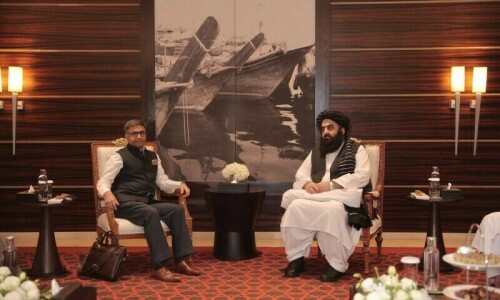
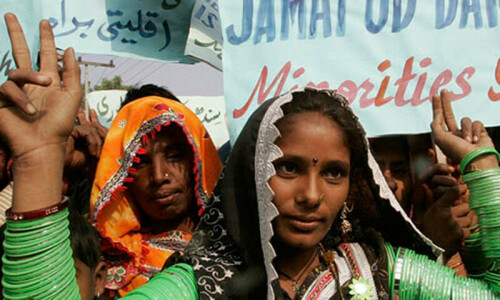
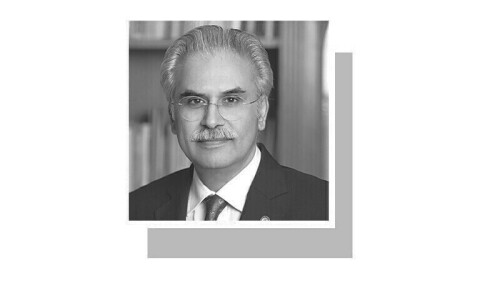


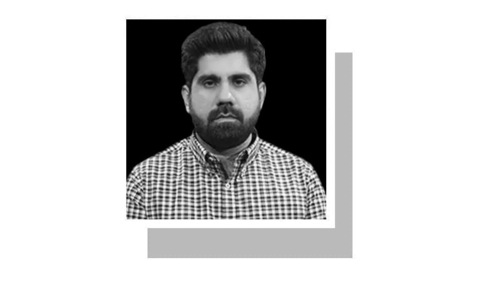
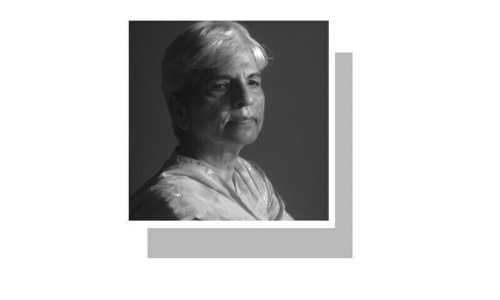

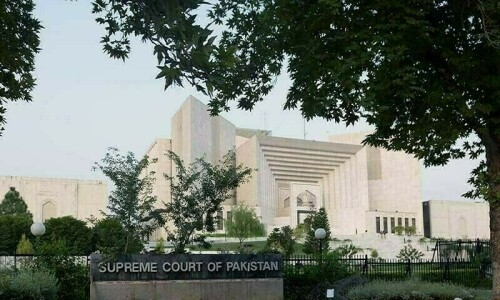



Dear visitor, the comments section is undergoing an overhaul and will return soon.